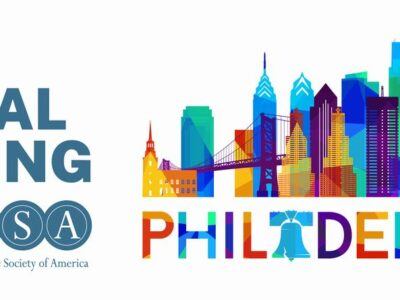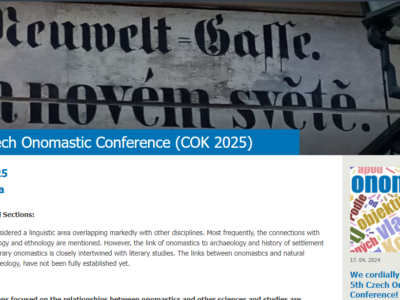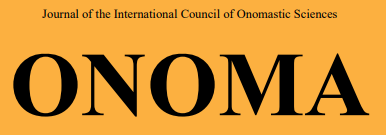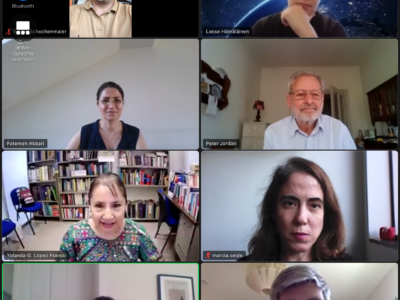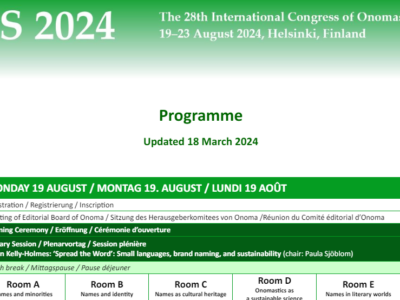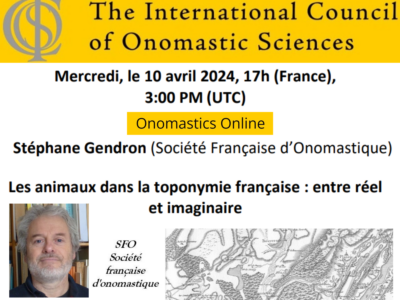
Workshop on ‘Place-names as Open Data’ at ICOS 2020
The 2020 Congress will include a workshop on ‘Place-Names as Open Data’, organized and chaired by Peder Gammeltoft (University of Bergen, Norway). The aim of the workshop is to explore the way in which open data (and linked open data implicitly) are already used and can be employed further in place-name research. Please follow the link for details.
August 28, 2020, 14:30-16:00
Coordinator: Peder Gammeltoft
What would a workshop on ’Place-names as Open data’ contain?
- A conceptualisation of what is Open Data (15 minutes presentation)
- Open data
- Linked open data
- Benefits of Open Data in place-name research? (15 minutes presentation)
- Discussion (45 minutes presentation)
- Conclusion (15 minutes presentation)
Possible elements in workshop presentations:
Explanation of what is Open Data?
Open data is the idea that data should be freely available to everyone to use and republish as they wish, without restrictions – or with only very minimal restrictions – from copyright, patents or other mechanisms of control. The goals of the open-source data movement are similar to movements such as open access, open-source software and open science, and the open web. The philosophy behind open data has gained popularity with the rise of the Internet and World Wide Web. However, the term linked data is also used of web-semantic linked data (when they are open, that is). In computing, linked data is data structured such a way that when interlinked with other data it becomes more useful through semantic queries. It builds upon standard Web technologies such as HTTP, RDF and URIs, but rather than using them to serve web pages only for human readers, it extends them to share information in a way that can be read automatically by computers.

